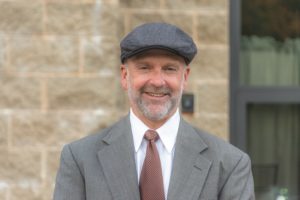EASTHAM — Throughout Mia Rubenstein’s freshman year at Nauset Regional High School, she says, she was taunted and bullied by students and by a teacher because she is Jewish. Her parents eventually withdrew her from the school in May 2019 and filed a complaint with the U.S. Dept. of Education’s Office for Civil Rights (OCR).
Federal investigators concluded, in a March 11, 2021 letter, that the school had failed to follow its own grievance process for harassment based on race, color, or national origin. There were no written reports about five separate complaints made by Rubenstein and her parents during that year, the OCR found, and it was unclear whether school officials had conducted a proper investigation.
The Independent obtained a copy of the OCR’s findings through a Freedom of Information Act request.
The OCR closed the case after Nauset officials agreed to rewrite district policies, conduct staff training, and put out a notice that harassment would not be tolerated. But details of the Rubensteins’ complaints were never revealed by the school and few among the staff and in the community knew anything about them.
A March 29, 2021 letter to faculty, staff, and students from then-Supt. Tom Conrad began with “In light of the events happening locally and nationally, I wanted to send this statement out to you all as reminder that if you are being harassed in any way to please reach out to someone within the school district.”
Lisa Brown, who teaches a class at Nauset High called Exploring and Respecting Differences, said staff were kept in the dark about the real impetus for the letter.

The three administrators named in the Rubensteins’ complaints are Conrad; former Principal Chris Ellsasser, who resigned in 2022; and Assistant Principal Sean Fleming, who is now an assistant principal at Nauset Regional Middle School. All three refused to comment for this article.
Brooke Clenchy, who became superintendent in the fall of 2021, said she knew of the Rubenstein complaints but none of the details. She said the school is now focused on making changes over the long term and has hired diversity consultants to provide staff training. Brown said the high school administration is totally new, and she has faith that it will set boundaries and enforce the rules.
Sandy Rubenstein, Mia’s mother, said she is skeptical of Nauset’s efforts because of the way her daughter’s case was swept under the rug.
Harassment Charges
Mia Rubenstein, 19, is now a senior at Suffield Academy, a private school in Connecticut, where she repeated her freshman year after leaving Nauset High. In her senior speech, she talked about her experience at Nauset, and her mother posted a video of it online.

Mia described her first day at Nauset in September 2018, when she said her government teacher, whom she did not name, called her to his desk after class.
“ ‘I just want you to know that I have a tattoo of a swastika on my back,’ he says with a smile,” Mia said in the speech. “My teacher continued to make derogatory remarks throughout all of September. On Oct. 27, 2018, there was a devastating shooting in Pittsburgh at the Tree of Life Synagogue. Eleven innocent Jewish people were killed.”
Mia said the teacher asked her to read a news story about the shooting aloud to the class.
“I read it,” she said. “One of the girls sitting next to me said that her dad had said that morning the event was ‘a step in the right direction.’ ”
The Independent learned the government teacher’s name and interviewed him in person. Because Rubenstein’s story could not be independently corroborated, the newspaper is not identifying him at this time. The teacher denied all of the accusations. When he was asked about the tattoo remark, the teacher took off his shirt and showed a reporter his back, which had no swastika tattoo.
The teacher said he did not know he had anything to do with Mia’s leaving the school and he denied being questioned by administrators.
“No one ever told me anything,” he said. “Nobody ever asked me about anything.”
His denials, however, are contradicted by the school’s version of events in the OCR report.
One of Mia’s final complaints in May 2019 was about a class project involving playdough when “the teacher placed a replica of a yarmulke on his head, which the student felt was disrespectful to the Jewish faith, and told her ‘Look: I’m Jewish,’ ” the OCR report states.
Nauset responded by describing an administrator’s interview of the teacher.
“The teacher explained that the yarmulke replica was part of a project regarding various religious symbols and expressed regret that the student was impacted,” according to the OCR. “He denied that he mentioned Judaism or that his actions were directed at any particular student.”
Based on the teacher’s statement, and with no other witnesses, the school could not say whether the teacher harassed Mia, Nauset’s attorney, Paige Tobin of Murphy, Lamere & Murphy, stated in the OCR report.
The OCR investigators stated they were “concerned that the district may not have conducted investigations designed to ascertain whether harassment occurred (e.g., identification of witnesses for the yarmulke incident.)”
The teacher had been a long-term substitute and part-time educational assistant for the school system from 2015 to 2019, Clenchy said. He was not rehired in 2019, he said, and now works in another Massachusetts public school.
Student Bullying
Mia said kids were bullying her, too, airdropping images of concentration camps and Hitler to her iPhone, according to the OCR documents. She went to Fleming for help. He went to the school’s information technology department, which found they were sent from an anonymous iPhone, according to the OCR.
Around the same time, sticky notes with swastikas were placed on Mia’s backpack. The school resource officer and Fleming looked at security footage and searched the trash where Mia said she disposed of them but found nothing, according to the OCR.
The Rubensteins told the OCR that in October 2018 and again in January the government teacher singled her out because she was “the only Jew” in the class and made comments such as “I don’t know if your opinion is different because you are Jewish.”
The district, according to the OCR, did “not provide any material to OCR related to the notice of or response to these alleged incidents.”
On March 27, the Rubensteins complained that Mia had received two emails with anti-Semitic slurs; one said “welcome to Naushwiz” [sic] and the other “leave you filthy Jew.” She deleted them, Mia said. The IT department looked but did not find any that were traceable, according to the OCR report.
School officials told the OCR that they tried to address harassment and discrimination on a schoolwide basis. On April 2 and 3, 2019, administrators and counselors went to every math class to discuss “topics of culture, inclusion and peer influences,” according to Nauset’s response to the OCR. “The topics gave students tools for how they can contribute to a positive school culture.”
Mia told the Independent that the meeting she witnessed focused on vaping with nothing about anti-Semitism.
Lisa Brown said she cannot remember any such meetings. Principal Ellsasser often talked about kindness, Brown said.
“Chris is good at philosophizing, but you need action, and that means very clear boundaries,” Brown said.
Mia fell apart emotionally that year, said her father, Will. She did not tell her parents the full extent of what was going on until January, he said; she deleted harassing messages because she did not want to deal with them, she told the Independent.
The decision to send her to boarding school was expensive and heartbreaking, he said. “When you have a child you expect them to leave home at 17 or 18,” he said. “I was really angry that she was taken away four years early.”
A Missed Opportunity
On Sept. 1, 2019, Mia was sent a Snapchat photo of a student with a swastika on her forehead. The Rubensteins forwarded it to Conrad’s office; Ann Taft, Conrad’s secretary, told them she was passing it to the police. Eastham Lt. Gus Schnitzer said they looked into it. “But we determined the matter occurred outside of our jurisdiction,” he said, because it was sent before the school year began and because the subjects did not live in Eastham.
The Independent obtained a copy of the photo from the Rubensteins and contacted the girl in the photo. (The newspaper is not naming her because of her age at the time.) She expressed regret, explaining that during freshman year she hung out with an older group of friends who “were not good people.”
“To think four or five years ago, I thought that was OK,” the girl said. “Now I want to throw up. All I can do is apologize.”
This girl confirmed that kids were making fun of Mia for being Jewish that year. As for her own involvement, she said she did not understand the Holocaust well enough until she studied it sophomore year.
Holocaust history must be taught in high school, according to the Mass. Curriculum Frameworks. But at Nauset Regional Middle School, English teacher Anne Needel’s eighth-grade students held an assembly during her Holocaust literature unit and put flags on the lawn representing 1.5 million murdered children. The event was canceled by the pandemic in 2020, and Needel has not decided if it will resume, according to Robin Millen, Nauset’s director of curriculum, instruction, and assessment.
In 2021, the Anti-Defamation League recorded 2,717 anti-Semitic incidents in the U.S. — a 34-percent increase from 2020 and the highest number on record since ADL began tracking such incidents in 1979.
Jonathan Greenblatt, CEO of the ADL, told the PBS Newshour that the U.S. is seeing a “kind of normalization of anti-Semitism and extremism” because of government leaders like Donald Trump and celebrities like Kanye West going on racist rants. “I’d like to see policymakers bring anti-bias education into classrooms,” said Greenblatt. “There’s a lot more that could be done.”
“Here is what I would have liked,” said Lisa Brown. “For the administration to have a faculty meeting to talk about what happened and give the power to the faculty to say something and stop it in its tracks. Because we all have a moral duty to protect our students’ safety and identity. Why didn’t they use 80 teachers on that campus to assure that this would not happen again? It was a deeply unfortunate missed opportunity.”
